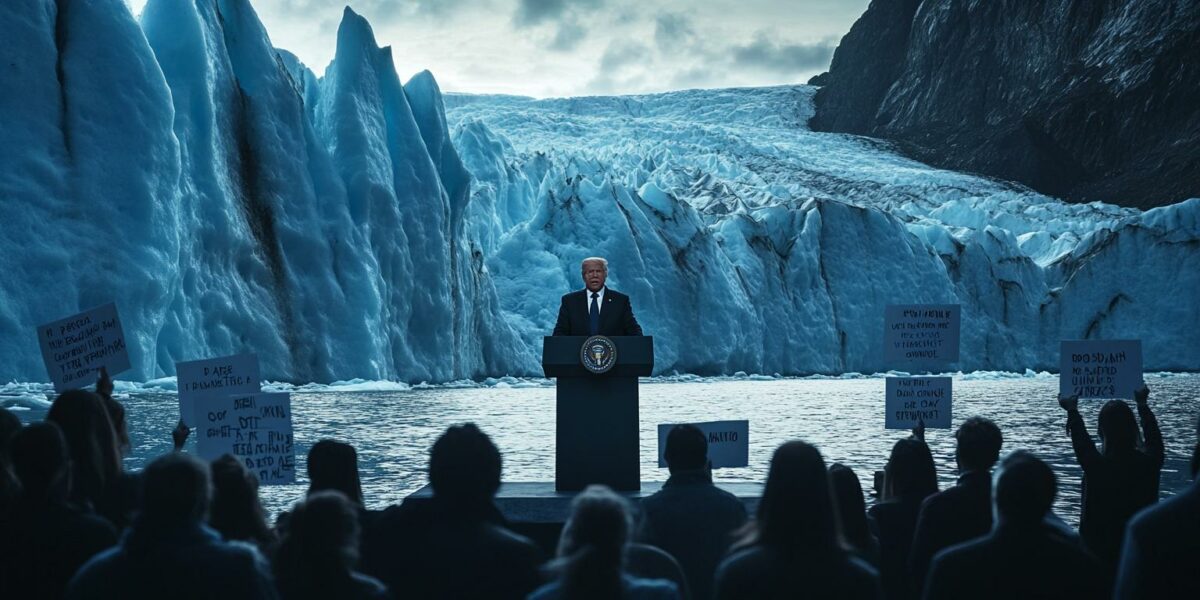Kamala Harris’ Climate Rhetoric Under Fire
Vice President Kamala Harris has been at the forefront of many political discussions, but her recent comments on climate change have sparked heated debates. Many argue that her statements are filled with platitudes rather than actionable plans. Critics are calling for more concrete steps to combat the escalating environmental crisis.
Environmental activists are particularly frustrated. They believe that the time for empty promises is over. According to them, the current administration needs to implement real, impactful policies to mitigate the adverse effects of climate change.
On the other hand, Harris’ supporters argue that her speeches raise much-needed awareness about the issue. They claim that her efforts help keep climate change in the public eye, which is crucial for maintaining pressure on policymakers.
However, the question remains: Will awareness alone be enough? The ongoing environmental degradation suggests that more than just awareness is needed to bring about meaningful change. The clock is ticking, and the planet can’t wait much longer.
The Need for Concrete Action
Experts in the field of climate science are calling for immediate and substantial measures to address the crisis. They argue that lip service won’t suffice. We need to see a robust plan that includes significant reductions in carbon emissions and a shift towards renewable energy sources.
Here are some key actions that experts recommend:
- Investing in renewable energy infrastructure to replace fossil fuels.
- Implementing stricter regulations on industries contributing to pollution.
- Promoting sustainable practices at both individual and corporate levels.
While these steps may seem daunting, they are necessary to ensure a sustainable future. The stakes are high, and the consequences of inaction are dire. Policymakers must prioritize these recommendations to make a tangible impact.
In addition to governmental action, individual efforts also play a crucial role. Simple changes in daily habits, such as reducing energy consumption and supporting eco-friendly products, can collectively make a significant difference.
Public Opinion and Political Will
Public opinion is a powerful force that can drive political change. Recent surveys indicate that a growing number of people are concerned about climate change. This shift in public sentiment could be the catalyst needed to push for stronger climate policies.
Political will, however, remains a significant hurdle. Despite the growing consensus on the urgency of the issue, many politicians are still hesitant to take bold steps. This reluctance often stems from economic concerns and political pressures.
Advocates for climate action argue that the long-term benefits of addressing climate change far outweigh the short-term costs. They emphasize that investing in green technologies can lead to economic growth and job creation, countering the argument that environmental policies harm the economy.
Ultimately, it will take a concerted effort from all sectors of society to combat climate change. The collaboration between government, businesses, and individuals is essential to drive meaningful progress and safeguard our planet for future generations.
The Role of Innovation in Climate Solutions
Innovation is a key component in the fight against climate change. New technologies and creative solutions can help mitigate the impact of human activities on the environment. For instance, advancements in renewable energy sources like solar and wind power are making them more viable alternatives to fossil fuels.
Moreover, the development of energy-efficient technologies can significantly reduce our carbon footprint. From electric vehicles to smart home appliances, these innovations offer practical ways to lower emissions and conserve resources.
Investing in research and development is crucial to foster these innovations. Governments and private sectors must collaborate to fund projects that aim to create sustainable solutions. This investment will not only help the environment but also drive economic growth by creating new industries and job opportunities.
In conclusion, while rhetoric and awareness are important, they must be accompanied by concrete actions and innovative solutions. The fight against climate change requires a multifaceted approach, combining political will, public support, and technological advancements. Only then can we hope to create a sustainable future for all.



TristanUnity
Great read! I hope she plans on addressing these concerns with real policies soon.
Lily
What are some specific steps we can take as individuals to combat climate change?
SophiaNexus
lol, I guess saving the world one speech at a time is a new strategy?
BrysonCipher
I’m tired of hearing promises. When will politicians actually follow through?
SamuelSeraph6
Well, talking is a start, but when do we get to see some real action?
Andrew_Velocity
Thank you for bringing this issue to light. We need more discussions on concrete actions!
ElizabethUnity4
Platitudes won’t save the planet, but at least she’s keeping the conversation going! 🌍
Luke_Cascade
Is Kamala Harris actually proposing any specific policies, or is it all just talk?